|
Message from the Executive Director
Patric Barbieri
|
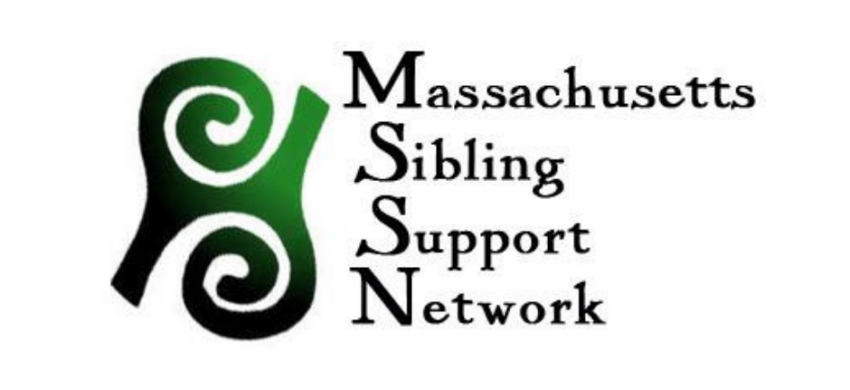 Sibling Support Groups!
Sibling Support Groups!
Last week I had the opportunity to interview Emily Rubin on our LABBB podcast who is the Executive Director of the Massachusetts Sibling Support Network.
This was a very inspirational and reflective podcast. In LABBB, we are trying to emphasize the need to plan for the future, and siblings are such an important part of this process. I attended a sibling group back in the late 70's as a 14 year old, but the research and information has come a long way since then and Emily has been a leader in this. If you have a chance, please listen to the podcast. There are also links below with more information on sibling support.
In episode #20 we talk about sibling support with Emily Rubin. Emily is Assistant Professor of Psychiatry at UMASS Medical School and Director of Sibling Support at the Eunice Kennedy Shriver Center. She is also Co-founder and Executive Director of the Massachusetts Sibling Support Network (MSSN). Emily is a Licensed Social Worker.
Patric
|
The Transition Planning Form - TPF
By: Amanda O'Leary
|
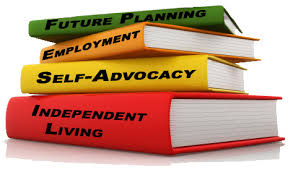 The Transition Planning Form (TPF) is an integral piece of a student's Individualized Education Plan (IEP) meeting. In Massachusetts, starting at age 14, schools are required to develop a Transition Planning Form with students. The Transition Planning Form is designed to help students and families develop a vision for when they leave the school system and identify the skills needed to attain this vision. Students who receive educational services through an IEP are entitled to those services until they are 22 or meet the requirements to receive their high school diploma. The Transition Planning Form (TPF) is an integral piece of a student's Individualized Education Plan (IEP) meeting. In Massachusetts, starting at age 14, schools are required to develop a Transition Planning Form with students. The Transition Planning Form is designed to help students and families develop a vision for when they leave the school system and identify the skills needed to attain this vision. Students who receive educational services through an IEP are entitled to those services until they are 22 or meet the requirements to receive their high school diploma.
Once a student turns 14, the TPF becomes the driving force behind writing and implementing the student's annual goals and objectives. The form is mandatory and includes the Post-Secondary Vision, a summary of Disability Related Needs, and an Action Plan.
The Post-Secondary Vision is the student's vision for their life after high school, but can also be a collaboration between the family, student, and other members of the student's team. When coming up with the vision, the entire team should be mindful of the student's interests and wants, as well as what the vision is for the student's post-secondary life. The areas of focus are post-secondary training/education, employment, and community experience/living.
The Disability Related Needs section takes into account all the skills that a student needs in order to achieve his/her post-secondary vision. The focus in this section should be on what the student CAN do, not what they cannot do.
The Action Plan focuses on how the student will develop the skills needed to successfully transition to post-secondary life and how their team will support the student in achieving their post-secondary vision. The three aforementioned areas (instruction: post-secondary training/education, employment, and community experience/living) are the primary focus. Not only does the team outline the skills that are needed, but also who on the team will help facilitate the development of those skills and implement the steps needed to achieve those skills.
When considering the area of Instruction, the team should take into account what learning opportunities or skills the student may need in preparation for post-secondary outcomes such as vocational training, certificate programs, and/or college. When thinking about the second area, Employment, what types of skills does the student need so that they are able to maximize their potential in the world of work? Consideration should be given to a variety of employment opportunities, including internships, work experiences, and supported job placements. Volunteer opportunities should also be considered as opportunities to focus on skill building. For many students, practice in interviewing, resume writing, and filling out job applications can be helpful in developing much needed skills for post-secondary life. Community Experiences/Post School Adult Living is the third and last focus area of the Action Plan. In this area, considerations should include how the student will participate in community based activities and what skills they will need to be successful in these activities. These could include a number of items, such as sports, classes, and social outings. The team should also be mindful of what types of support the student needs in other areas of daily living, such as accessing his/her community, travel training, managing their money, as well as health needs, and being safe in the community.
It is important to note that the TPF is truly the vision of the student and family. It takes into account what the student and family believes will be most meaningful for their student's post-secondary life. Since the incorporation of the TPF into the IEP process begins at age 14, it is important to remember that the initial vision may change over time, depending on the student's needs and interests. It is also possible that the goals proposed in the Action Plan may not all be realized by the end of the student's schooling - this is okay. The Action Plan is just that, a plan for the family and student to use in years to come as they enter their post-secondary life.
|
Clinical Corner: New Year Resolutions
By: Andrew McCorkle
|
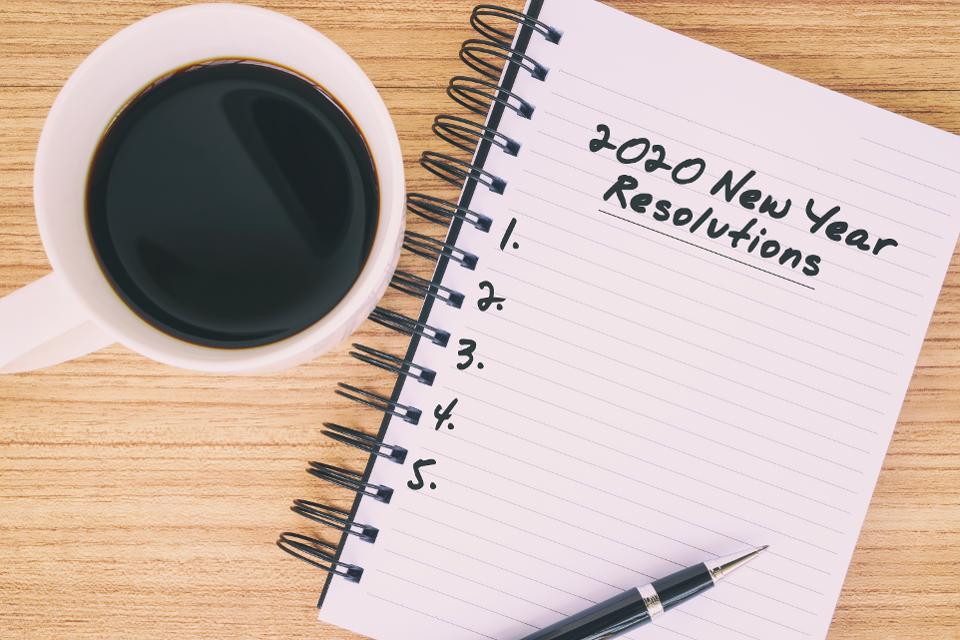 Happy New Year! The holiday season has passed and we have returned to our typical routines at work, school, and home. Many people use this post-holiday transition as an opportunity to look ahead at the year to come and envision the changes they want to see for themselves in the coming months, and do so in the form of setting goals or making resolutions for the new year. While setting personal goals is an excellent way to foster personal growth and create positive change for ourselves, it can be deceptively challenging to figure out how to set ourselves up to achieve what we have set out to accomplish. Here are some simple but helpful tips! Happy New Year! The holiday season has passed and we have returned to our typical routines at work, school, and home. Many people use this post-holiday transition as an opportunity to look ahead at the year to come and envision the changes they want to see for themselves in the coming months, and do so in the form of setting goals or making resolutions for the new year. While setting personal goals is an excellent way to foster personal growth and create positive change for ourselves, it can be deceptively challenging to figure out how to set ourselves up to achieve what we have set out to accomplish. Here are some simple but helpful tips!
- Be specific and realistic: Thinking of taking up running this year? Instead of setting your goal as "I am going to run a marathon this year", "Three days a week, I will jog for 30 minutes" is a more realistic goal,as it focuses on developing and establishing the habit of running rather than immediately striving to run a big race, and it also spells out exactly how you plan to meet this goal (in this case, by specifying how often and for how long you will go for a run). The more specific the goal, the more likely it is that you will achieve it.
- Give it time: It takes time to develop new habits, so don't worry if you don't feel as if you feel like giving up too quickly. When we are making a change in our day to day life and developing a new routine, our brains need time to adjust. Be patient--small progress each day adds up to great progress over time-- and don't give up!
- Repetition, Repetition, Repetition: Say your goal out loud to yourself or write it down on a daily basis. The more regularly you remind yourself of your goal, the more likely it is that you will accomplish it!
- Do it for you: Take care to ensure that the goal you've set for yourself is truly your goal, not anyone else's. While family members, partners, peers, or colleagues may want you to set a particular goal, or change in a certain way, setting goals is a personal endeavor. Choose your goal because it is meaningful to you above anyone else.
- Mistakes do not equal failure: Everyone makes mistakes, especially when working on something new. If you slip-up or miss a day at the gym, don't beat yourself up over it--remind yourself that you can get back on track and that mistakes are opportunities for us to learn and grow. Be kind to yourself!
To all you goal setters: Y'all can do it! Have a wonderful 2020!
For more tips and info about goal-setting, here is a nifty piece from NPR:
|
Making Connections for a New Year
By: Crystal Kaloostian
|
As we enter into a new year, we need to be reminded of how far we have come in a short time.
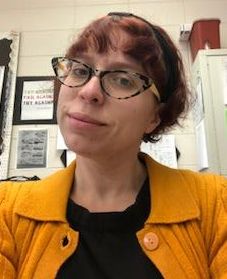 This is my first year at LABBB Collaborative though I have been a Special Education teacher for over ten years. I have already felt like I am part of a family and that my class has been with me for years instead of months. This is my first year at LABBB Collaborative though I have been a Special Education teacher for over ten years. I have already felt like I am part of a family and that my class has been with me for years instead of months.
We have all worked hard to get to know each other and learn each other's quirks and abilities. We have made new friends and connections. We have already had new students start and a student transition on and we have found ways to work with each other and communicate our wants and needs. We have had challenges and learning curves and many silly moments.
We often forget how hard it is on teachers and students to jump in and make new connections, learn new routines and requirements, and get to know new students/teachers. However, each year we step right in and meet these goals and we choose to work to the best of our ability. That drive and ability is what makes us stronger and better and it is why I do what I do.
I feel so lucky to be a part of Chenery Middle School at LABBB and I am so excited to have the classroom that I have. The staff and students have welcomed me with open arms and we have all enjoyed the adventure of learning all about each other so far.
Let us all keep looking forward to more memories and making more connections as time goes on and we all get more comfortable in our routines.
|
|
Recreation News and Events
By: Paula Rizzo, Integration and Recreation Coordinator
|
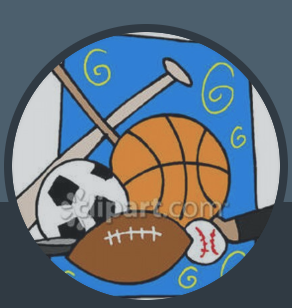
Happy New Year from the LABBB Recreation Department! This is the time of year when the Tuesday and Thursday bowling programs and Wednesday Recreation programs get set up and sign ups go out in the mail to families. We are also starting to put the final touches on planning for the LABBB Disney Trip and Special Olympics.
Be on the look out for a packet to be coming in the mail (USPO) for sign ups for the Spring Bowling, Wednesday Recreation, and for the February Events.
Save the Date for upcoming events:
January 27, 2020 Start Date for Lucky Punch Boxing.
March 5, 2020 Start date for Thursday Spring Bowling.
March 5, 2020 LABBB Alumni Dance at St. Brigid's Parish Hall, 6:30-9:00PM.
March 11, 2020 1st Pillow Polo Game, Staff vs Students, Lexington High Gym
6-8:00PM.
March 24, 2020 Start date for Tuesday Spring Bowling.
March 25, 2020 Start date for Wednesday Recreation.
April 1, 2020 Best Buddies Trip to Celtics Game.
May 22, 2020, Special Olympics.
June 4, 2020 LABBB Alumni Dance at St. Brigid's Parish Hall, 6:30-9:00PM.
June 11, 2020 LABBB Graduation.
Looking forward to 2020 being a great year of fun and socializing from @LABBBREC
|
|
2019-2020 Parent Meetings
|
LABBB Evening Parent Meetings
During our LABBB parent meetings we discuss various topics related to programming, special needs planning, recreation, transition, post 22 planning, SSI, financial planning among many other topics.
Time: 7:00pm-8:15pm
Location: Lexington Community Center, 39 Marrett Rd., Lexington Ma.
*All parent meetings are the same evening as our monthly dances so you can drop of your son or daughter and attend the parent meeting.
October 24 Leo Rotman and Karen Mariscal: Special Needs Planning
November 21 Patric Barbieri, Special Needs family Planning
January 16 Mass Advocates: Transition planning
February 27 LABBB Post 22 Adult Program
March 26 Federation of Children with Special Needs
April 30 TBA
May 28 Camille Grimes: Adult Foster Care (AFC)
Executive Director Chats
Executive Director chats are an extension of our evening parent meetings and for parents who cannot attend in the evenings.
Time: 10:00am-11:15am
Location: LABBB Central Office, 123 Cambridge Street, Burlington (Burlington High School)
September 26
October 31
December 5
February 6
March 19
May 7
LABBB Parent Alumni Meetings
Our parent alumni meetings are a great resource for parents who want to continue to be connected to the LABBB community. Many of our parents share their experiences and learn about future opportunities for housing, recreation and keeping their son or daughter socially engaged with peers.
Time: 10:00am-11:15pm
Location: LABBB Central Office, 123 Cambridge Street, Burlington (Burlington High School)
September 13
October 18
December 13
February 7
March 27
May 8
|
|
Woodland Guest House Updates
|
|
|
|
|
In episode #20 we talk about sibling support with Emily Rubin. Emily is Assistant Professor of Psychiatry at UMASS Medical School and Director of Sibling Support at the Eunice Kennedy Shriver Center. She is also Co-founder and Executive Director of the Massachusetts Sibling Support Network (MSSN). Emily is a Licensed Social Worker.
This was a special podcast and it was a reflective experience for me as a sibling of a sister with special needs. Emily shares her research on sibling support groups and her perspective and knowledge on this subject is profound. This is a must listen for families and siblings and there are many resources you can access.
.
Episode #15: Dyslexia and Working Your Strengths with Kathy Murphy
|
|